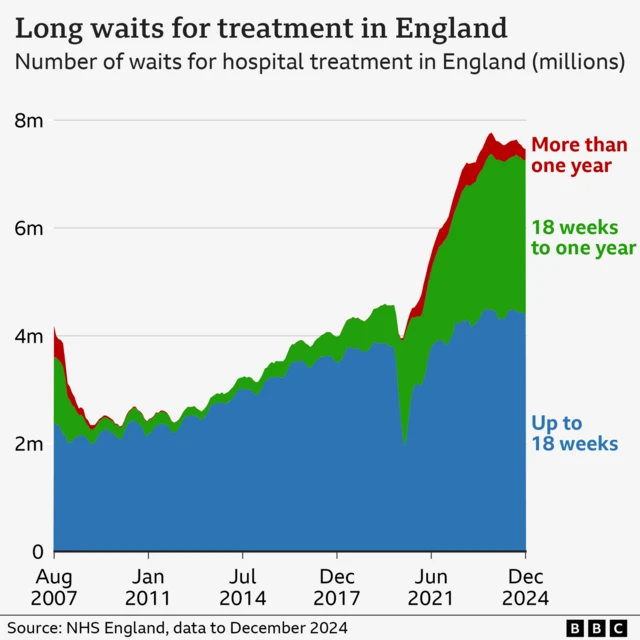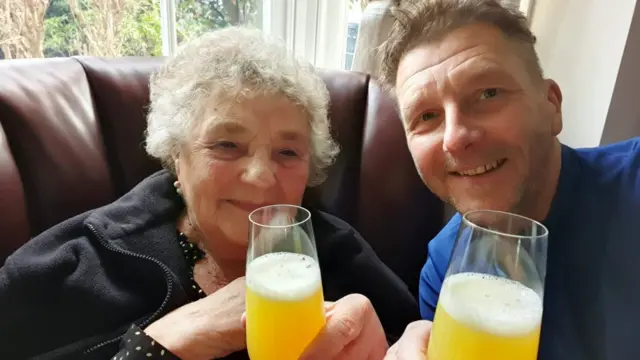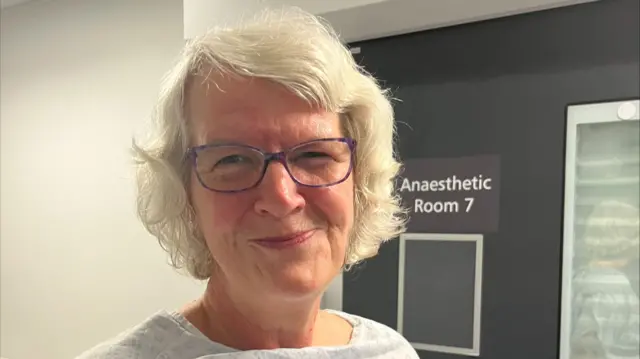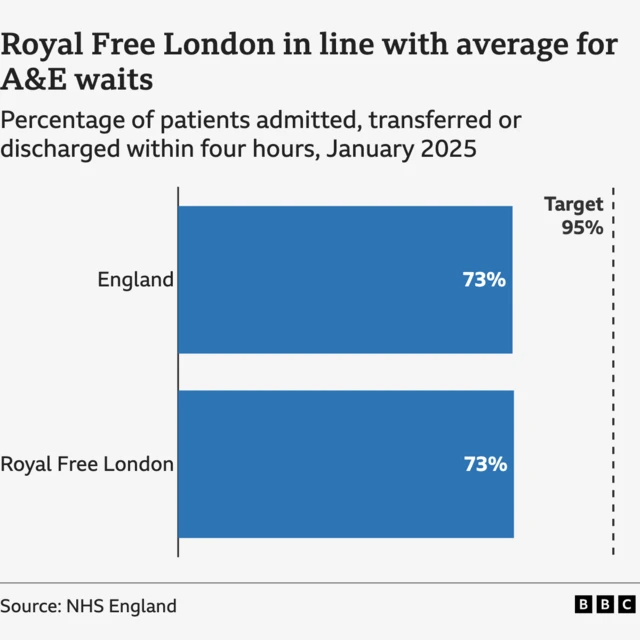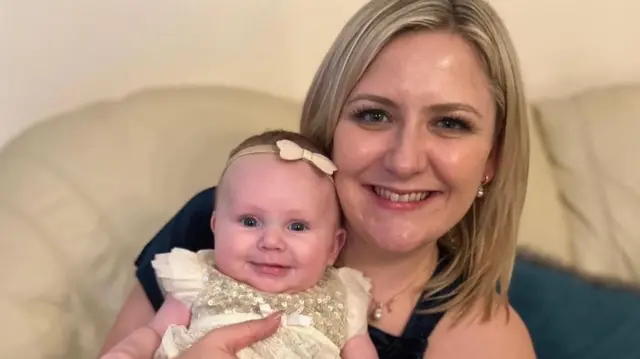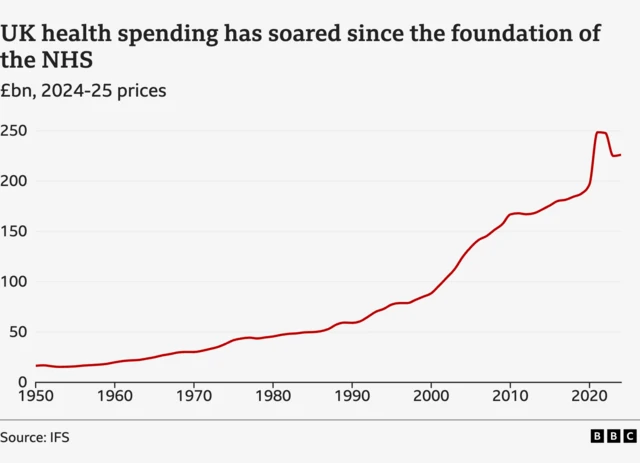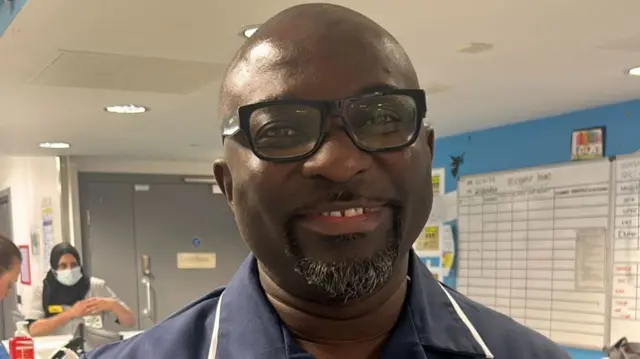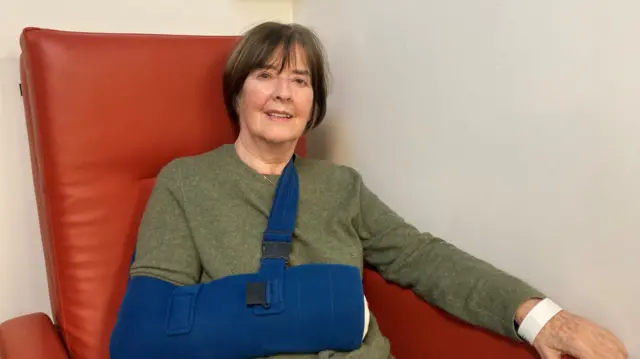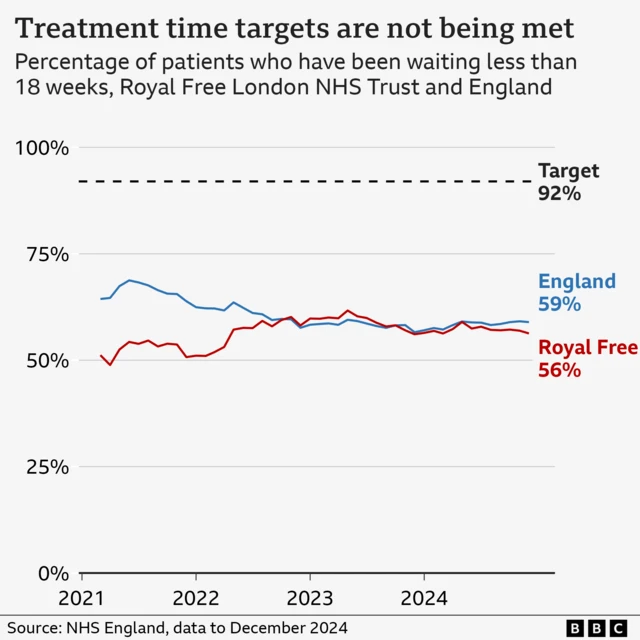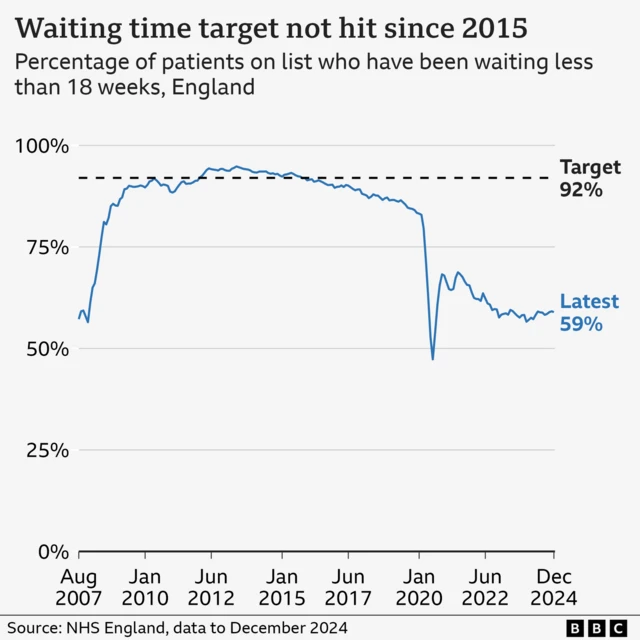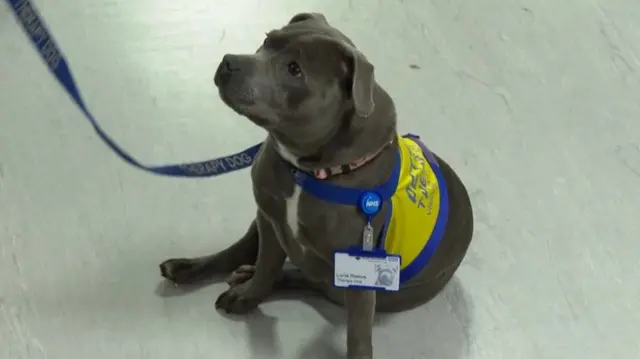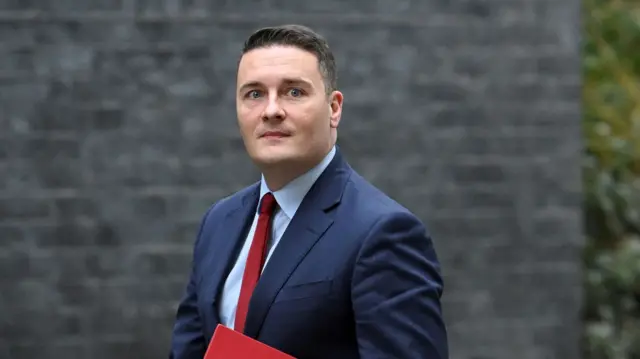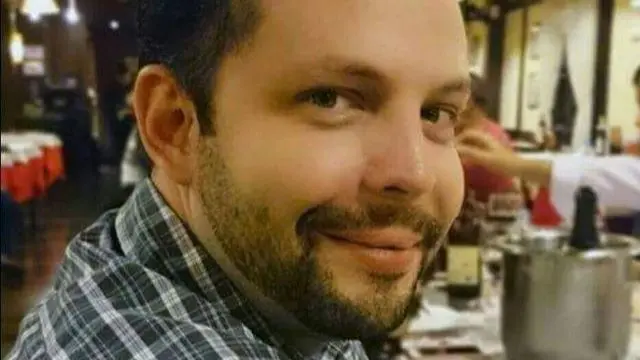Inside the Royal Free: How 'barn operating theatres' are speeding things uppublished at 12:39 GMT 13 February
Vicki Loader
BBC News, reporting from Chase Farm Hospital
We are at Chase Farm Hospital in Enfield, north London – part of the Royal Free Hospital Trust – which is their centre for planned surgery. The hospital is key to getting down the waiting list for scheduled procedures like orthopaedics and ear, nose and throat procedures.
Here, they have what's called a barn operating theatre -and it's key to Chase Farm getting those waiting lists down.
From the outside a barn operating theatre looks like four normal operating theatres, side by side. But inside they are open to each other – divided only by transparent screens.
Up to four operations can be happening simultaneously and they allow surgeons to communicate to one other, such as if they need a second opinion.
There are only a few barn theatres across the country. And the trust is very proud of it’s state-of-the-art set up.
